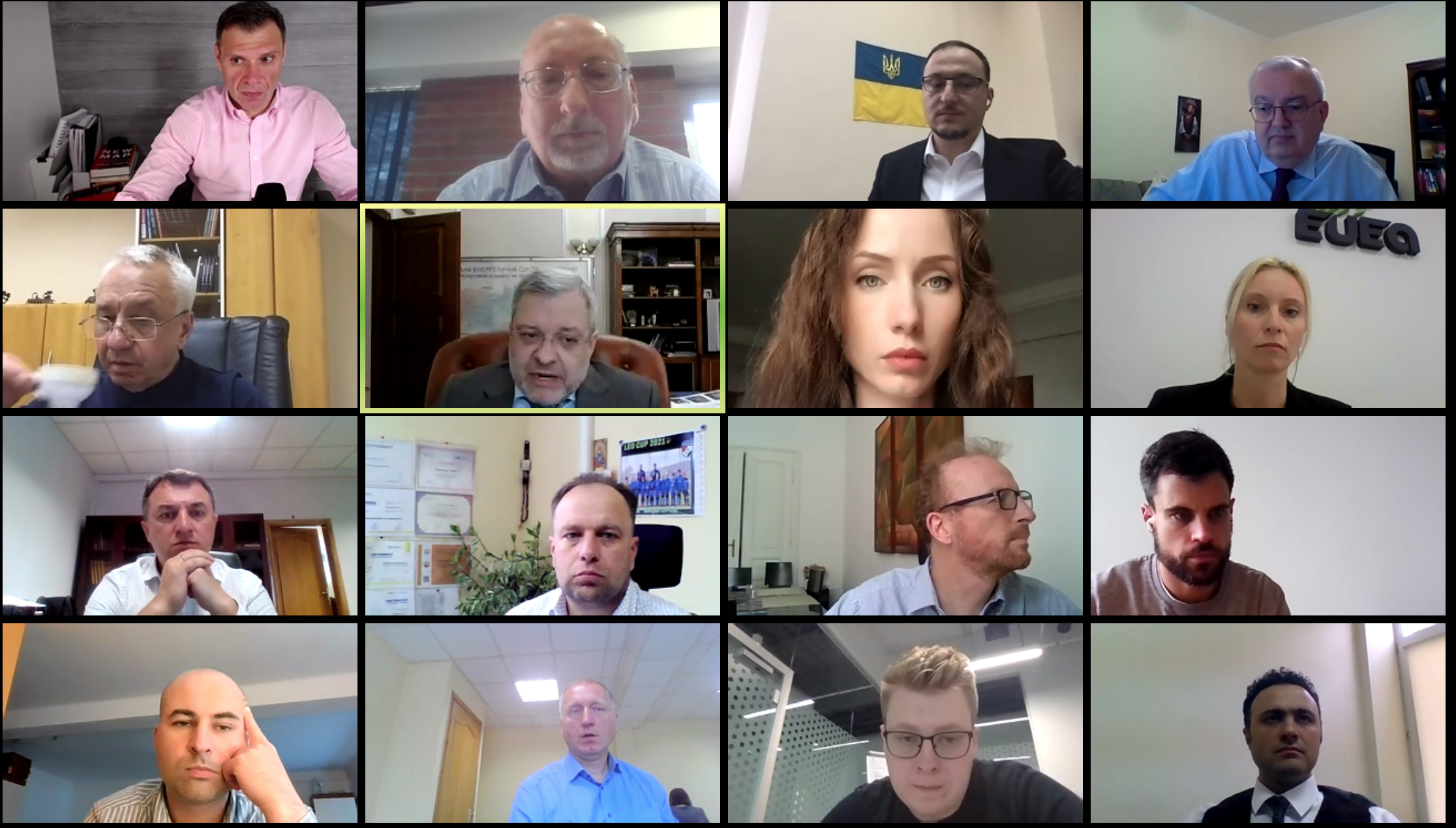On May 27, USAID Energy Security Project held a roundtable on “Auctions for Energy Storage and Resource Adequacy Approaches”, aimed to discuss pending storage legislation and related ways of electricity market balancing.
Addressing the roundtable participants, Minister of Energy of Ukraine Herman Halushchenko noted that developing energy storage systems is one of the important steps towards integrating Ukraine’s energy system with ENTSO-E, Europe’s continental energy system. “The Ukrainian power system needs to increase flexibility and available reserves, and maintain and restore the frequency. Energy storage systems can meet these needs,” the Minister stressed, confirming the Energy Ministry’s readiness for dialogue and cooperation.

Janez Kopač, Director of the Energy Community Secretariat, called for further work to remove barriers and use market approaches that are in line with EU policies and legislation. He noted that balancing and ancillary services are not part of the current Aquis, but Clean Energy Package deals with storage and ancillary services, and that terms related to the package will become part of the Aquis this November.
USAID Ukraine Senior Energy Advisor Sukru Bogut underlined that the USAID ESP considers battery storage technology as power systems stabilization or frequency control and for the ancillary services market. USAID and ESP support market based battery storage systems. As an example, he mentioned providing technical support for UKRHYDROENERGO’s hybrid, solar and battery storage project. The project includes installation of battery storage at five hydro power plants, and solar panels as backup power supply in low water conditions. The project does not require a construction contract or a power purchase agreement and will be competitive on the ancillary service market. Mr. Bogut has also underlined that it makes sense for Ukraine to adopt an approach to storage systems and resource adequacy that is aligned with current EU approaches. He also expressed confidence that market-based solutions will provide the right services and mechanisms: “We recommend attracting the necessary investment through market mechanisms to avoid state aid schemes. Similarly, tenders for constructing storage facilities should be based on market mechanisms to address the issue of resource adequacy.”
Ukrainian politicians who took part in the discussion spoke in support of market mechanisms for developing the energy storage sector, but did not rule out state support, emphasizing the need to seek a “happy middle ground.”
At the same time, Andriy Gerus, Chair of the Verkhovna Rada Committee on Energy, Housing, and Communal Services, urged going ahead with storage legislation to avoid the next crisis in the power sector and proposed a storages support in the form of their exemption from payment of TSO’s and DSOs’ tariffs.
Oleksiy Kucherenko, First Deputy Chairman of the Verkhovna Rada Committee on Energy and Housing, and Communal Services, supported the development of the storage market, noting the importance of solving financial problems and debts of energy market participants.
Volodymyr Kudrytskyi, Chair of the Board of NEC Ukrenergo, stressed the need for rapid reserves in the system to integrate into ENTSO-E, as well as the growing importance of energy storage and storage systems for efficient balancing of generation from renewable sources. “In the upcoming 3-5 years, we will need 200 MW of storage in the system, and within 10 years at least 500 MW. We stand for market mechanisms, because so far all surcharges in our tariffs have led to financial imbalances and damaged our activities,” said the NEC Ukrenergo Board Chair. He also noted that the payback period for the energy storage system is estimated at 5-6 years per 1 MW of installed capacity.
Ruta Baltause, Energy Expert of the EU Delegation’s Support Group to Ukraine, emphasized, “The main element for ENTSO-E integration is compliance with the network and market rules. The ancillary services market is a mandatory element for this goal.”
Fatih Kolmek, Senior Electricity Manager, Energy Security Project, emphasized on the following:
Apply market approaches in line with EU policy and legislation, as well as with the Energy Community acquis if ENTSO-E and market integration is to succeed;
Aligning with the EU Directive 944 and Regulation 943 is important considering the role of these policies for market integration and near-term plans for their adoption at the Energy Community;
Harmonise resource adequacy with ENTSO-E’s methodologies and processes;
Identify and remove market and regulatory barriers and intervention to allow market to deliver the required investments;
Comply with State aid rules when designing non-market financing means (i.e., capacity mechanism) – this is a last resort. Ensure sustainability of financing, without cross-subsidisation.
The event was attended by representatives of the Ministry of Energy, Verkhovna Rada of Ukraine, National Energy and Utilities Regulatory Commission (NEURC), NEC Ukrenergo, PJSC Ukrhydroenergo, the EU Delegation to Ukraine/Support Group of Ukraine, the Energy Community Secretariat, the World Bank, the International Finance Corporation, and the European Bank for Reconstruction and Development.
